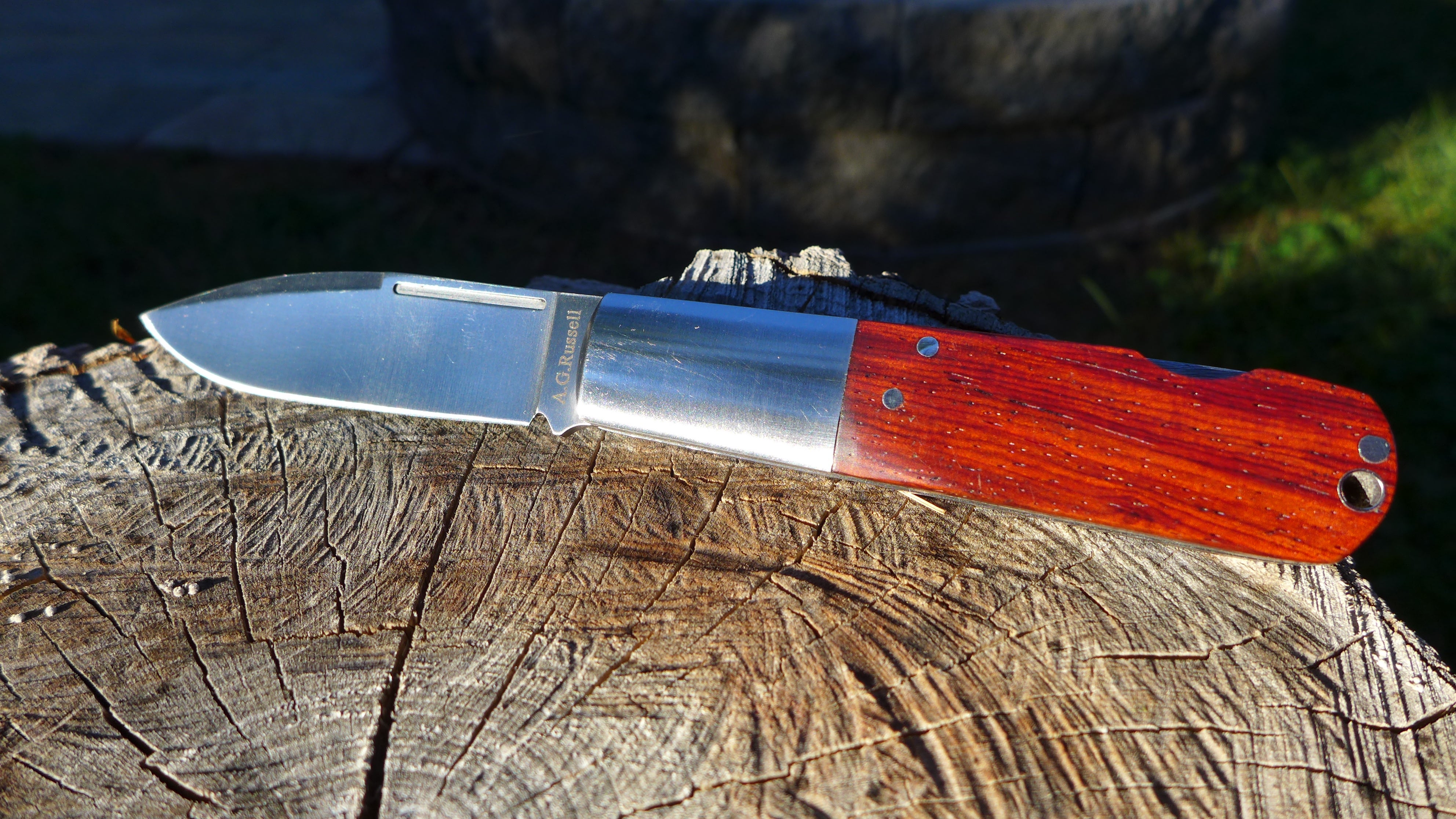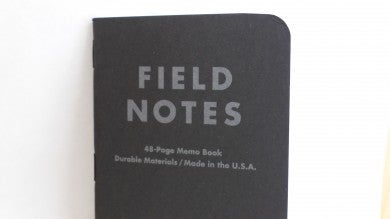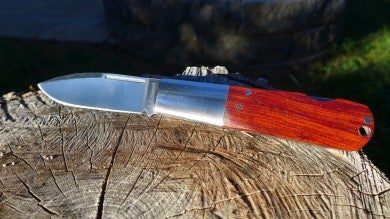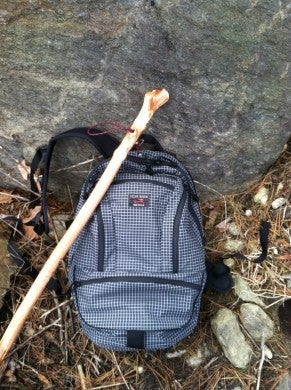EDC History: Henry David Thoreau’s EDC
Tony Sculimbrene 01.06.14

Walden Pond is one my favorite places on the planet. It is a beautiful lake, a scenic mirror of calm in winter, and a great swimming spot in summer. We use it as a hiking training grounds for our three-year-old son, preparing him for more vigorous hikes and exposing him to the endless play nature affords. It is also a mecca for fans of literary, ecology, and self-reliance. In an age when Edward Snowden tells us just how intrusive our government can be in our daily lives, Thoreau’s notions of civil disobedience strike a chord.
There are dozens of intellectuals, professors, and writers interested in Thoreau now, and they have done work on Thoreau’s life and habits. Of particular interest to me was something that D.B Johnson dug up in working on children’s book on Thoreau called “Henry Hikes to Fitchburg.” According to D.B. Johnson, Thoreau carried the following with him everyday:
- pencil
- paper
- some string
- a “jack knife”
- a spyglass
- a magnifying glass
- a flute
- a music book
- a walking stick with various notches.
That’s quite a functional list, with almost everything serving at least double duty. These uses are speculation on my part, except for the music book, which Thoreau talked about in Walden. Many of these dual uses are pretty self-evident though, so I don’t feel like this is all just crazy hypothesizing.
The paper was good for taking notes, as Thoreau was something of an amateur naturalist and a gifted writer. It could also be used to start a fire in a pinch, though the poor and penurious Thoreau would be unlikely to waste paper on a fire unless he REALLY needed it. He could jot down a book idea or a sketch a leaf with ease. The pencil’s use is obvious. The string helped him gather biological samples, and I am confident that it could be used it fishing or snaring animals. The jack knife, an old term for a pocket knife, was likely, given Thoreau’s notorious lack of money, a Barlow, the affordable common man’s budget blade at the time (and still in use today). The purpose of both knife and the spyglass is obvious. The magnifying glass could be used both for magnifying bugs and smaller things of interest to Thoreau and be used to start fires during the day. The flute, well, that is one of the few non-utility items in Thoreau’s EDC, but even hardcore survivalists like John “Lofty” Wiseman have noted to the value of musical instruments in SAS Survival Handbook. The music book, cleverly, was literally pressed into two different roles, giving Thoreau something to play with his flute AND press samples of fauna for collection and cataloging. Finally, the notched walking stick helped him on his many journey’s by foot, and the notches helped him measure items he was documenting.
Thoreau’s love of nature is one of two central ideas that animates his voluminous output (that along with a need for just government). His EDC (though he’d never know what that term meant) focused on nature was incredibly useful, given the times and the tasks he used it for on a daily basis. He was famous for walking everywhere, preferring a nice stroll to a horse or a train. He would often challenge friends, saying that he could walk some place before they could earn enough money to buy a train ticket (this is the premise of D.B. Johnson’s children’s book referenced above). Given his habit of walking, this is a good kit for the 1800s.
Here is my hand at modernizing it, but keeping with the spirit of what Thoreau was trying to do.
The Pencil: With a knife handy, a traditional wood case pencil would be a nice tribute to Thoreau, and if we are talking wood case pencils, the Blackwing 602 has to be your first choice. The originals were acclaimed by writers and artists alike (Chuck Jones of Looney Tunes fame was a notable fan) and sell for astronomical amounts on eBay now. Palomino’s reproduction of the Eberhardt-Faber original has been widely hailed as a good replacement of the legendary original. I’d throw in a 10 cent tip protector if you are going to be walking.
The Paper: While Thoreau likely carried a few sheets of paper, we have a bevy of book-sized choices. I just reviewed the Field Notes Pitch Black standard book, and it is a great notebook.
It is durable and has better paper than the more well known Moleskine Cahier. This would be my choice to replace Thoreau’s sheets.
The String: Depending one what you would use it for, I would either go with a length of 550 paracord or some fishing line, both of which are available for only a small amount of money.
The Jack Knife: There is no question here: the AG Russell Medium Barlow.
The Barlow that Russell offers is probably pretty similar to the knife that Thoreau actually carried (other than the Chinese steel). It would be something he instantly recognized and could use. This is a no brainer. It has modern functionality and historically accurate design.
Spyglass: There are dozens of choices out there for binoculars, but I’d opt for a camera instead. There is probably not much of a need to scout the horizon for hostiles, and I love to take pictures outdoors, so I’d opt for a camera. My favorite, compact, easy to use camera is the Panasonic RX-7. It’s much cheaper than other cameras and smaller than the dSLRs and micro four thirds units.
Magnifying Glass: Again, the camera’s macro abilities make up for the need to blow up small critters and plants, but if you want the item for fire starter, don’t mess around. Get a tiny BIC lighter. Kyle Ver Steeg recently ran through his camping kit on an episode of the Knife Journal Podcast and included a BIC. That’s good enough for me.
Flute: I can’t play or read music, so advice here would be irresponsible. The wanderlust in me wants to suggest a harmonica.
Music book: With an inability to read music and a camera, the music book is entirely superfluous for me.
Walking Stick: I wrote a how-to for walking sticks and carry one almost daily when hiking. Here is my walking stick that I have used for more than 1000 miles over 4 years.
I prefer rock maple for its beautiful ability to take finish, tight grain pattern, carvability, and high strength to weight ratio.
There you have it, a modern recreation of Henry David Thoreau’s EDC. Oh wait, I forgot one thing…
A copy of Walden. It is a well-written, utterly American, and wonderfully timely book even today. Start the New Year with a quick read. It’s worth it. Brits have a tradition of reading John Stuart Mill’s On Liberty on quiet New Year’s day. We should read Walden. Nature, self-reliance, and good prose are always worth carrying and reading, plus they never go out of style.


